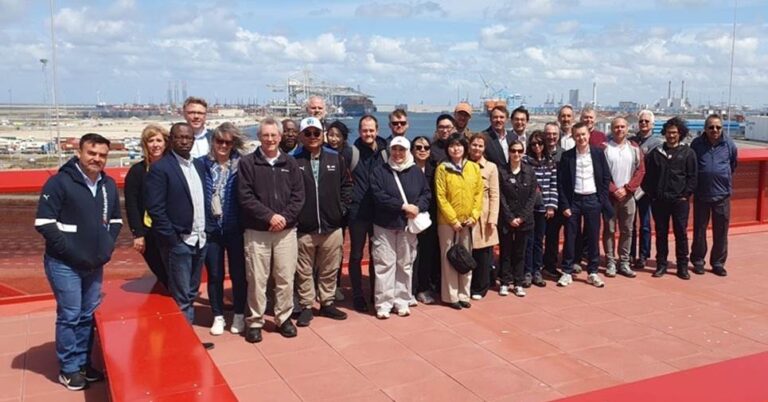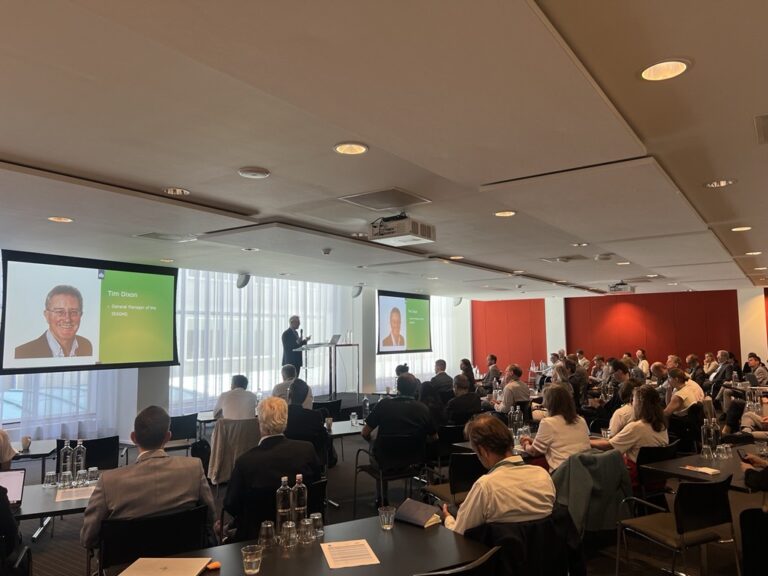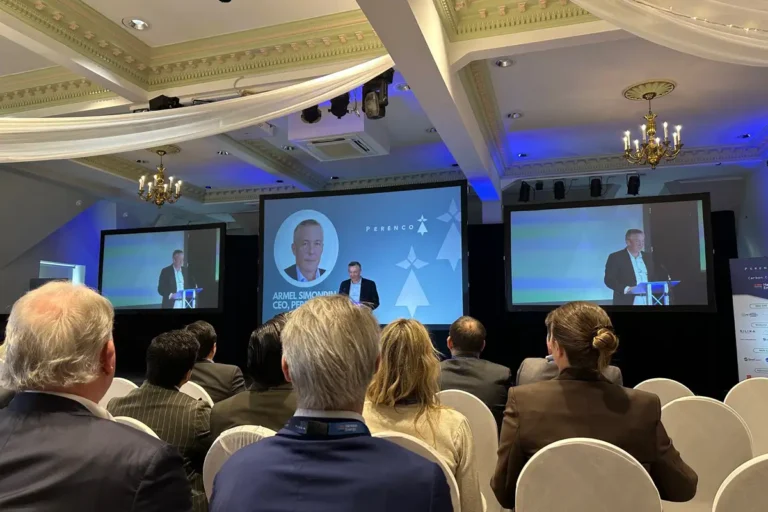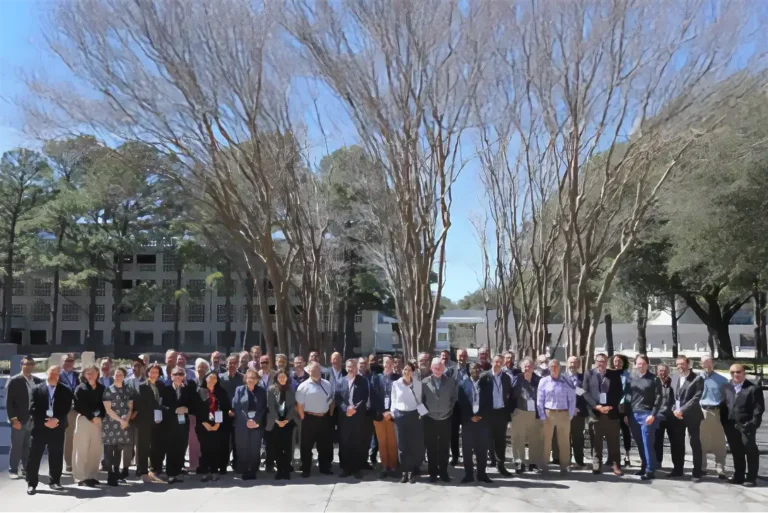
IEA-COP26 Net-Zero Summit Virtual High-Level Dialogue
8 April 2021


On Wednesday 31st March 2021, the International Energy Agency (IEA) held a live event bringing together top international energy and climate leaders from around the globe for vital discussions on turning net zero ambitions into reality.
Opening – A Grand Coalition to Achieve Net Zero
The opening welcome to this grand coalition to achieve global net zero looked at the IEA’s forthcoming Net Zero Roadmap (to be launched on the 18th May 2021) which is a vital foundation for ensuring the world can turn ambitious targets into ambitious, near-term action. The roadmap will set out what needs to happen across the global economy to put emissions on a firm path to Net Zero, in a timescale consistent with keeping the temperature rise below 1.5 degrees. Fatih Birol (Executive Director, IEA) emphasised that Net Zero can only happen with global cooperation and by working together, we can innovate faster, create economies of scale and drive forward with incentives, adding that as the UK provides much leadership in climate mitigation, the IEA supports Glasgow ahead of COP26. Alok Sharma (COP26 President-Designate, UK) noted that more must be done now to turn remote targets into immediate action; the world cannot afford another decade of deliberation. A key goal of the UK’s COP26 presidency is to facilitate global cooperation, a theme of importance as recognised in this event.
Conversation between Major Economies
John Kerry (Presidential Special Envoy for Climate, USA) remarked that this is not a political goal; climate change is a reality that scientists have been telling us about for years – we need to take action by fostering collaboration now in this great economic opportunity; it is a critical time. Ngozi Okonjo-Iweala (Director-General, World Trade Organisation) recognised that international trade and WTO rules must support climate goals as trade can play an important role in making sure we provide ‘the framework, the context and the push we need for the greening of our planet’. All major economies represented in this event agreed that international collaboration is crucial and the harmonisation of policies is needed. Frans Timmermans (Executive Vice-President, European Commission) made a stark point: ‘if we don’t act in the next couple of years, our children will be at war with each other for water and food’. There is a huge sense of urgency and we need to make the investments now to create sustainable societies as well as leading by example domestically.
Accelerating Technology and Innovation in Key Sectors
Panel 3 of the ministerial panels held at this summit looked at Accelerating Technology and Innovation in Key Sectors, and considered what fora and institutions are needed to enhance international collaboration within each energy use sector. Australia noted that they will be investing $18 billion in low carbon technologies up to 2030 and will be looking at cost reduction in critical technologies like carbon capture and storage (CCS). The Czech Republic too are looking into CCS, for example with Norwegian partners on storage in central and Eastern Europe. It was highlighted that enhancing international collaboration is key and gains will depend upon targeting collaboration between each sector, sector-specific efforts, whilst signalling that everyone is welcome to join in these efforts. More is needed on the development of infrastructure and sustainable networks. The European Green Deal, and the IEA’s upcoming roadmap will provide paths for reaching Net Zero and critically, making this a socially fair transition. The representative for Sustainable Energy for All summed it up fantastically: ‘this is the year of energy, the time to be bold’ and the overwhelming message was that international cooperation and collaboration is absolutely imperative.
Leaders’ Plenary – Toward Glasgow and Beyond
For the first part of the plenary, moderated by Dr. Fatih Birol, Minister Kajiyama (Japan) spoke on the importance of energy security in the clean energy transition required to achieve the aims of the Paris Agreement. There was no optimum solution to achieve net zero, with developed and developing economies being confronted by very different uncertainties and risks. While countries would choose their own path, all clean energy technologies would need to be on the table.
Next, panel co-chairs from the five Ministerial Panels provided brief conclusions and next steps.
Panel 1: Ensuring People-Centred Transitions
Minister Jørgensen (Denmark) raised three key issues. First, jobs; jobs were a key priority when putting people front and centre of a clean energy transition. Next, all people would be affected in the transition and all must be given a voice. Thirdly and finally, inclusion; women, youth and marginalised groups must all be included in the dialogue.
Panel 2: Catalysing Near-Term Implementation
Minister Tasrif (Indonesia) emphasised the need for greater ambition from all parties and stressed the role of international cooperation to catalyse the energy transition required. The next decade was key. All technologies must be in the game to align with the energy goals. As an example, he pointed to yesterday’s announcement of the IEA-Indonesia Energy Transition Alliance, which marked a step-change in ambition for Indonesia’s energy transition.
Panel 3: Accelerating Technology and Innovation in Key Sectors
Minister Trevelyan (UK) underlined the need for enhanced international cooperation across all sectors to decarbonise rapidly and to keep 1.5°C within reach. This was crucial, particularly across hard-to-decarbonise sectors such as shipping, aviation and iron & steel. Furthermore, as no economic sector is free from the need to decarbonise, it is critical that ministers across governments play their part, not just those with responsibilities for energy and environment.
Panel 4: Mobilising Clean Energy Investment
Minister O’Regan (Canada) said that mobilising finance was one of the ‘nerve centres’ of the clean energy transition. Massive investment was needed to meet net-zero, with divestment away from opportunities that were not focused on clean energy. To accomplish this, the private sector needs governments to set clear goals. A critical issue was how to mobilise clean energy investments in the emerging economies. Practical insights were needed.
Panel 5: Building Confidence that Commitments will be Realised
Minister Ribera (Spain) highlighted the need for short-term goals, with the challenges faced by all regions taken on board. Transparency was important. Policy consistency would reduce risk and enhance action, and there was an important role to be played by the financial communities. Timeframes must be chosen such that they may be respected, with investment decisions consistent with climate goals.
Alok Sharma, UK’s COP26 President-Designate, moderated the second part of the Leaders’ Plenary, in which high-level speakers were invited to reflect on the major priorities for action in the run up to Glasgow and the forthcoming IEA Ministerial, and international clean energy architecture going into 2022 and beyond could be further strengthened.
Reaffirming Italy’s support for COP26, for which Italy is Partner Host with the UK, Minister Cingolani (Italy) pointed to the need for significant action this decade, with the UN’s NDC Synthesis Report concluding that we must all be more ambitious. There is a unique opportunity, he said, for all actors to bring about transformative change, remarking, however, that there would be no single solution, but many – each shaped according to national circumstances. Decarbonisation would, once again, lead to a healthy planet, one where poverty was eradicated rather than continued widening of gaps and further exclusion. At COP26, he stressed that youth must have a voice, that they be placed front and centre – an initiative that would be led by Italy.
With France having hosted COP21, Minister Pompili (France) pointed to December 2015 as the turning point, one where at last there was a global response to climate change. Following COP21, 191 parties signed the Paris Agreement – bring with it a new paradigm, one where 5-year commitments rather than expectations were made. Glasgow, she said, must be where breakthroughs must be made, not to end in deadlock as happened in Madrid. Faster progress must be made; even in the face of a health crisis, the climate crisis must be addressed. Solidarity and cooperation were key. The clean energy transition must be a just transition, one that gains social acceptance, one that leads to the creation of green jobs.
Christiana Figueres was Executive Secretary of the UNFCCC during COP21 and, subsequently, when the Paris Agreement was signed. She pointed to the fact that, just five years ago, universal agreement on the need for a clean energy transition did not exist. Now, not only is there such agreement but also agreement on the urgency required of that transition. As many had before her, she highlighted the importance of collaboration, public and private, local and international – recognising there was much common ground on which this might be based. While finance was key, she felt the IEA’s forthcoming global roadmap, the first comprehensive roadmap to net-zero emissions by 2050.
While relocated to Madrid late in the day, Chile retained the Presidency of COP25. Minister Jobet (Chile) emphasised that ambition was key for progress to be made at COP26, with national initiatives, clean growth and job opportunities to be brought to the table. Realising the Paris Agreement will rely on technologies that are not yet available. Innovation was fundamental to the development of new clean energy technologies. Ambition must be high, with concrete action plans in place. 2021, he declared, would be a crucial year in climate action – along with COP26 in Glasgow, Chile would be hosting the 6th Mission Innovation Ministerial (MI-6), setting the stage for the launch of MI’s next phase.
Alok Sharma, COP26 President-Designate, agreed, 2021 would be a critical year for the climate. All would need to work together to make the progress required, with many critical moments, many critical events along the way, the green thread of climate to be woven together.
Dr. Birol provided closing comments. With more than 40 ministers attending this IEA-COP26 Net-Zero Summit, the countries they represented accounted for more than 80% of global emissions. Real commitment had been shown around this virtual table, which augured well for this crucial year ahead. Directly following the Summit, the IEA would release on its website the ‘Seven Key Principles for Implementing Net Zero’.
Samantha Neades
Keith Burnard
Other articles you might be interested in
Get the latest CCS news and insights
Get essential news and updates from the CCS sector and the IEAGHG by email.
Can’t find what you are looking for?
Whatever you would like to know, our dedicated team of experts is here to help you. Just drop us an email and we will get back to you as soon as we can.
Contact Us NowOther articles you might be interested in
Get the latest CCS news and insights
Get essential news and updates from the CCS sector and the IEAGHG by email.
Can't find what you are looking for?
Whatever you would like to know, our dedicated team of experts is here to help you. Just drop us an email and we will get back to you as soon as we can.
Contact Us Now









